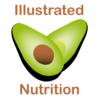Navigating Nutrition as You Age

Taking care of our bodies is a lifelong journey, and as we get older, some of our nutritional needs undergo small or even significant changes. Understanding these shifts and reacting to them consciously can help us maintain better health and vitality throughout middle age and our senior years. Let’s explore the nuances of nutrition for older adults and how we can embrace dietary changes that support healthy aging.
Caloric Intake and Nutrient Density
As we get older, our chances of getting chronic diseases and other conditions increase, especially regarding changes in muscle and bone mass. To help mitigate these risks, we need to choose nutrient-dense food and maintain active lifestyles. Naturally, physical activity and metabolic rate tend to decline with age. This by itself isn’t bad. This also means that calorie intake tends or even needs to decrease in order to prevent excess fat. But the need for nutrients still stays the same, or in some cases even increases.
This typically means eating more fruits, vegetables, and whole grains. It also means considering supplementation when consuming enough healthy food is too difficult or just not physically possible.
As one example, aging can affect your body’s ability to absorb vitamin B12, a vital nutrient. To consume enough B12, many health professionals recommend fortified foods like breakfast cereals or dietary supplements.
Potassium, omega-3 fatty acids, magnesium, and iron are also crucial nutrients that are key to supporting overall health in older adults. These nutrients contribute to managing blood pressure, reducing the risk of heart disease, and preventing anemia.
Fiber Intake
As we age, various physiological changes, such as muscle loss, thinner skin, and reduced stomach acid, impact our nutritional requirements. Understanding these changes helps tailor our diets to support overall well-being.
For many older adults, constipation becomes a common concern and is influenced by factors like reduced mobility, medications, and dehydration. Increasing dietary fiber through fruits, vegetables, and whole grains can help alleviate constipation and support regular bowel movements. A high-fiber diet also has many other benefits, such as helping to lower cholesterol, helping to control blood sugar levels, and helping to prevent diseases, such as diverticular disease, which is more prevalent in the elderly.
Hydration is also something that can sometimes take a backseat. Thirst sensation tends to decline with age, which means that older adults are less likely to consume adequate fluids. Drinking plenty of water is important for cellular function, digestion, bowl function, and overall health.
Bone Health
As we age, our bodies become less efficient as absorbing calcium and synthesizing vitamin D, so these two nutrients can become a special concern for the elderly. It can be beneficial to increase consumption of calcium-rich foods.
We all know that dairy contains calcium, but calcium can also be found in beans, almonds, and dark green leafy greens, like cabbage, broccoli, kale, Brussels sprouts, collard greens. If you’re concerned about the oxalate levels of some green vegetables, boiling or steaming can reduce these levels. Surprisingly, some fruits also have calcium, like oranges.
Very few foods naturally contain vitamin D, though many foods are fortified with vitamin D, and of course, there are many kinds of supplements. Do your research to find the best ones, especially if you live north of the 37th parallel.
Getting adequate nutrition in the later stages of life involves understanding your body’s changing needs and making intentional choices. Embrace nutrient-dense foods, stay hydrated, and address specific age-related concerns. By adopting these practices, older adults can enhance their well-being maintain good health for many years.
